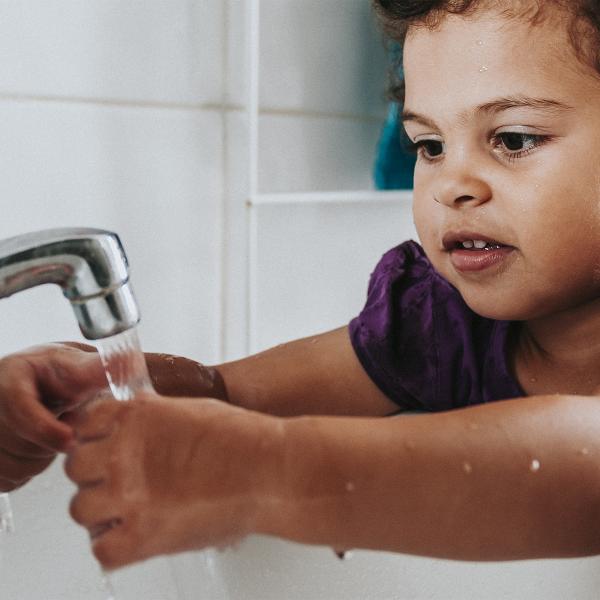What is pink eye?
Pink eye, or conjunctivitis, causes swelling and redness in the inside of your eyelid and the white part of your eye. Your eye may also feel itchy and painful.
Pink eye is common, and some types of pink eye spread very easily. You can keep from spreading it to other people by washing your hands often and not sharing items like pillowcases, towels, or makeup.
Some types of pink eye get better on their own. If your case is mild, you can ease your symptoms at home using a cold compress and eye drops you can get over the counter, meaning without a prescription. Other types of pink eye may need treatment from a doctor.
Pink eye in newborns
Pink eye can cause serious health problems for newborn babies. Call a doctor now if your baby has:
- Unusual fluid (discharge) coming from the eye
- Puffy red eyelids
What are the symptoms of pink eye?
The most common symptoms of pink eye are:
- Pink or red eyes
- Itchy or burning eyes
- Watery eyes
- White, yellow, or green fluid (discharge) coming from your eyes
- Crust along your eyelids or eyelashes, which may keep your eyes from opening when you wake up
Pink eye may also cause:
- Swollen eyelids
- A feeling like something’s stuck in your eye
- Sensitivity to bright light
- Blurry vision
- A lump in front of your ear
If you wear contact lenses, you may notice that they feel uncomfortable or don’t stay in place.
Am I at risk for pink eye?
Anyone can get pink eye. It’s one of the most common eye problems for both children and adults.
You’re more likely to get pink eye if you:
- Come in contact with someone else who has pink eye
- Recently had a respiratory infection, like a cough or a cold
- Wear contact lenses
- Come in contact with something you’re allergic to
Newborn babies are also at higher risk for pink eye — and it can be very serious.
What causes pink eye?
Most of the time, pink eye is caused by a virus or bacteria. Viral pink eye is the most common type.
You can also get pink eye from allergies to things like pollen or pet fur — or from other things that can bother your eyes, like pool water with chlorine, air pollution, or makeup.
It can be hard to figure out the exact cause of pink eye, because the symptoms are usually the same.
How can I prevent pink eye from spreading?
Viral and bacterial pink eye spread very easily from person to person — but you can take steps to keep pink eye from spreading.
If you’re around someone who has pink eye:
- Wash your hands often with soap and water. If you don’t have soap and water, you can use hand sanitizer with alcohol in it.
- Wash your hands after you touch the person with pink eye or something that person used — for example, if you help put eye drops in their eyes, or put their bed sheets in the washing machine.
- Always wash your hands before touching your eyes.
- Don’t share personal items that the person with pink eye has used — including pillows, towels, makeup, or glasses.
If you have pink eye:
- Wash your hands often with soap and water. Be extra careful about washing them after you touch your eyes or use eye drops or medicine. If you don’t have soap and water, you can use hand sanitizer with alcohol in it.
- Avoid touching or rubbing your eyes.
- If you have discharge, wash the area around your eyes 2 or 3 times a day. Use a clean, wet washcloth or a fresh cotton ball each time. Be sure to wash your hands before and after washing your eyes.
- Don’t share personal items with other people — including pillows, towels, makeup, or glasses.
- Clean your glasses regularly.
- If you wear contact lenses, follow your eye doctor’s instructions for cleaning, storing, and replacing them.
You can also take steps to prevent getting pink eye again:
- Throw away any makeup that you used while you had pink eye. This includes eye makeup, face makeup, and brushes or sponges.
- Throw away contact lens solution, contact lenses, and cases that you used while you had pink eye.
- Clean your glasses and cases.
When do I need to see a doctor for pink eye?
Most cases of pink eye get better on their own. Go to the doctor if:
- You have a lot of pain in your eye
- Your eye is very red
- You notice a lot of mucus coming from your eyes
- Your vision is blurry or you’re sensitive to light — and it doesn’t get better when you wipe away discharge from your eye
- Your symptoms don’t get better after a few days — or they get worse
- You have a health condition that weakens your immune system, like cancer or HIV
- You have symptoms of pink eye and you wear contacts, or you recently scratched your eye
The doctor will look at your eyes and ask you some questions to find out what caused your pink eye and decide on the best way to treat it.
What’s the treatment for pink eye?
Pink eye often gets better on its own after 7 to 10 days. But sometimes, you need treatment from a doctor.
